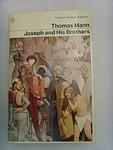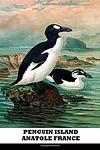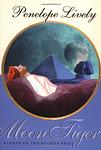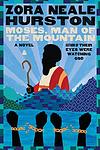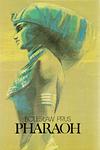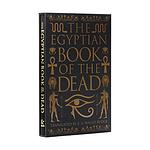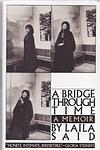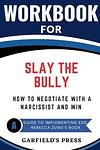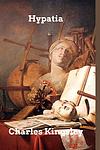The Greatest "Historical fiction, Egypt" Books of All Time
Click to learn how this list is calculated.
This list represents a comprehensive and trusted collection of the greatest books. Developed through a specialized algorithm, it brings together 300 'best of' book lists to form a definitive guide to the world's most acclaimed books. For those interested in how these books are chosen, additional details can be found on the rankings page.
Genres
Historical fiction is a genre of literature that combines fictional stories with real historical events, settings, and characters. These books often take place in a specific time period and are based on research and factual information, but also include imaginative elements to create a compelling narrative. Historical fiction allows readers to experience the past in a unique and engaging way, while also providing insight into the social, cultural, and political issues of the time.
Countries
Date Range
Reading Statistics
Click the button below to see how many of these books you've read!
Download
If you're interested in downloading this list as a CSV file for use in a spreadsheet application, you can easily do so by clicking the button below. Please note that to ensure a manageable file size and faster download, the CSV will include details for only the first 500 books.
Download-
1. The Alexandria Quartet by Lawrence Durrell
"The Alexandria Quartet" is a tetralogy of novels that explore the intricate relationships between a group of friends and lovers in Alexandria, Egypt, before and during World War II. The novels are known for their rich and evocative descriptions of the city and its diverse inhabitants, as well as their innovative narrative structure, which presents the same events from different characters' perspectives in each book. The work explores themes of love, betrayal, and the nature of reality and perception.
-
2. The English Patient by Michael Ondaatje
"The English Patient" is a story of four diverse individuals brought together at an Italian villa during the final days of World War II. The narrative revolves around a severely burned man who can't remember his name or past, a young Canadian nurse who tends to him, a Sikh British Army sapper, and a Canadian thief. As they navigate their own traumas and losses, the past of the mysterious patient slowly unravels, revealing a tale of love, identity, and betrayal.
-
3. Joseph and His Brothers by Thomas Mann
This novel is a re-imagining of the biblical story of Joseph, known for his coat of many colors. The narrative delves deeply into the psychological aspects of each character, exploring their motivations, flaws, and virtues. The story covers Joseph's life from his early years in Canaan, through his betrayal by his brothers who sell him into slavery in Egypt, his rise to power in Pharaoh's court, and his eventual reconciliation with his brothers. The novel is a rich tapestry of dreams, myths, and rituals, blending biblical tradition with the author's own philosophical insights.
-
4. Thaïs by Anatole France
"Thaïs" is a historical novel set in Egypt during the 4th century, revolving around a beautiful and hedonistic courtesan, and a Christian ascetic monk who becomes obsessed with her. The monk, seeking to save her soul, convinces her to abandon her life of luxury and pleasure to live in a convent as a penitent. However, as she finds peace and salvation in her new life, the monk is tormented by his repressed desires and lust for her, ultimately leading to his own spiritual downfall. The novel explores themes of desire, faith, and the destructive power of obsession.
-
5. Palace Walk by Naguib Mahfouz
The novel is set in Cairo during World War I and revolves around the life of a conservative Muslim family. The patriarch, a shopkeeper, has two wives and several children, and the story explores the dynamics within the family, particularly the tyrannical father's relationships with his wives and children. As the family navigates through a changing society, they encounter various challenges including political unrest, societal norms, and the struggle between tradition and modernity.
-
6. Moon Tiger by Penelope Lively
"Moon Tiger" is a profound exploration of memory and history, narrated by a dying historian, Claudia Hampton, who decides to write a history of the world, but it turns out to be her own history as well. The narrative moves back and forth in time, reflecting Claudia's fragmented memories, and delves into her past relationships, particularly a passionate love affair in Egypt during World War II. The novel explores themes of love, war, the fluidity of time, and the subjective nature of history.
-
7. The Cairo Trilogy by Naguib Mahfouz
"The Cairo Trilogy" is a captivating tale set in Egypt during the early 20th century, following the lives of the Abd al-Jawad family. The trilogy explores the intricacies of family dynamics, societal changes, and political unrest, as it delves into the personal struggles and triumphs of its characters. With vivid descriptions and rich storytelling, the trilogy offers a deep insight into the complexities of Egyptian society, tradition, and modernization, making it a timeless masterpiece of literature.
-
8. Moses, Man Of The Mountain by Zora Neale Hurston
In this novel, the iconic biblical tale of Moses is reimagined through a unique blend of folklore, cultural anthropology, and African American spirituality. The story follows Moses, a powerful and complex figure, as he leads his people out of Egypt and slavery, challenging both the Pharaoh's tyranny and the skepticism of his followers. The narrative weaves together themes of leadership, faith, and liberation, while exploring the intersections of race, religion, and power. The author infuses the ancient story with rich vernacular and a deep understanding of the African American experience, offering a fresh perspective on a timeless epic.
-
9. The Arabian Nightmare by Robert Irwin
"The Arabian Nightmare" is a captivating and surreal journey through the dreams and nightmares of a young scholar named Abdulla. Set in medieval Cairo, the book explores the blurred lines between reality and fantasy as Abdulla becomes entangled in a web of magical creatures, mythical beings, and supernatural occurrences. With richly descriptive prose and a deep understanding of Arabian folklore, the story delves into themes of identity, love, and the power of storytelling, leaving readers questioning the nature of dreams and the boundaries of the human imagination.
-
10. Midaq Alley by Najib Mahfuz
Set in an old Cairo neighborhood during World War II, the novel delves into the lives of the residents of a bustling alley, offering a tapestry of human experiences and social issues. Through the stories of a diverse cast of characters, including a young beauty dreaming of a better life, a wealthy businessman seeking love, a cafe owner yearning for his past, and others, the narrative explores themes of love, ambition, and the struggle for personal fulfillment. The alley serves as a microcosm of society, reflecting the larger cultural and political changes occurring in Egypt at the time, and the characters' intertwined lives illustrate the complexities of human nature and the universal quest for happiness and meaning.
-
11. Miramar by Naguib Mahfouz
Set in 1960s Egypt, "Miramar" tells the story of an aging revolutionary, a rich man's daughter, a corrupt journalist, and a real estate agent who all come to reside at the Miramar Pension in Alexandria. Their lives intertwine with the life of the young peasant woman who works there as a maid, and through their interactions, the novel explores themes of social and political change in Egypt, the struggle between old and new, and the power of the individual to shape their own destiny.
-
12. Pharaoh by Bolesław Prus
"Pharaoh" is a historical novel set in ancient Egypt, during the reign of Pharaoh Ramses XIII. The story is a complex and compelling tale of court intrigue, power struggles, and the inevitable clash between church and state. The young Pharaoh, Ramses XIII, is pitted against the powerful and entrenched priesthood and the corrupt and decaying Egyptian nobility. The novel explores themes of power, corruption, and the human condition, while providing a detailed and accurate portrayal of ancient Egyptian culture and society.
-
13. The Balkan Trilogy by Olivia Manning
The narrative follows a young British couple, Harriet and Guy Pringle, as they navigate the tumultuous landscape of Eastern Europe during the early years of World War II. Set against the backdrop of the Balkans, the trilogy paints a vivid picture of the couple's experiences in Romania and Greece, where they encounter a diverse cast of characters, from diplomats and soldiers to refugees and spies. As the war encroaches on their lives, their marriage is tested by the strains of displacement, political uncertainty, and personal betrayal, offering a poignant exploration of love, loyalty, and the human spirit amidst the chaos of conflict.
-
14. Sinuhe The Egyptian by Mika Waltari
The novel is a sweeping historical narrative set in ancient Egypt, following the life of a physician named Sinuhe from his humble beginnings to his rise through Egyptian society. As a witness to the political machinations and cultural shifts of his time, Sinuhe encounters love, betrayal, and the complexities of human nature against the backdrop of significant historical events, including the reign of Pharaoh Akhenaten and the religious revolution he instigated. Through his travels and experiences, Sinuhe reflects on the nature of fate, power, and the eternal search for meaning in a changing world.
-
15. The Egyptian by Mika Waltari
The novel is a sweeping historical epic set in ancient Egypt, following the life of Sinuhe, a physician who rises from humble beginnings to become a trusted confidant of pharaohs and kings. Through Sinuhe's eyes, readers experience the political intrigue, war, and religious turmoil of the time, as he travels across known civilizations, from Babylon to Crete, engaging with historical figures and experiencing the cultural richness of the era. His personal journey of love, betrayal, and search for meaning is set against the backdrop of the fall of the Egyptian empire, providing a vivid tapestry of the human condition and the ebb and flow of destiny.
-
16. Zayni Barakat by Jamal al- Ghitani
"Zayni Barakat" is a captivating novel set in 19th-century Egypt, following the life of Zayni Barakat, a young man caught in the midst of political and societal turmoil. As he navigates through a world of corruption, power struggles, and forbidden love, Zayni's journey becomes a reflection of the struggles faced by the Egyptian people. Through vivid storytelling and rich historical context, the book explores themes of identity, revolution, and the complex dynamics of a nation on the brink of change.
-
17. Η Χαμένη Άνοιξη by Stratis Tsirkas
This novel unfolds in the turbulent era of World War II, exploring the lives of individuals caught in the whirlwind of global conflict and personal turmoil. Set against the backdrop of Alexandria, a melting pot of cultures and nationalities, the narrative delves into the complexities of human relationships, political intrigue, and the quest for identity amidst the chaos of war. Through the eyes of its diverse characters, the story captures the essence of a lost spring, symbolizing both the literal and metaphorical loss experienced by those living through the war and its aftermath. The novel is a poignant reflection on the cost of conflict and the enduring hope for renewal and peace.
-
18. Drifting Cities by Stratis Tsirkas
Set against the backdrop of World War II and the subsequent civil war in Greece, this novel weaves together the lives of a diverse group of characters who find themselves in Jerusalem, Cairo, and Alexandria. Through their interconnected stories, the narrative explores themes of identity, displacement, and the quest for personal and political freedom. The cities, each with their own unique atmosphere and challenges, serve as more than mere settings; they are integral to the characters' experiences, reflecting the broader historical and cultural shifts of the mid-20th century. As these individuals navigate love, betrayal, and the struggle for a sense of belonging, the book offers a rich tapestry of human resilience and the complexities of home in times of turmoil.
-
19. Fortunes Of War by Olivia Manning
This novel is a gripping narrative set against the backdrop of World War II, focusing on the lives of a young British couple, Harriet and Guy Pringle, as they navigate the challenges and upheavals brought on by the conflict. Living in Eastern Europe, they find themselves caught in the tides of war, with Guy's position as an English teacher becoming increasingly precarious. The story explores themes of love, loyalty, and the struggle for survival in a foreign land amidst the chaos of war, offering a poignant look at the personal impacts of global conflict. Through their journey, the couple encounters a diverse cast of characters, each coping with the war in their own way, providing a rich tapestry of human experience during a time of widespread uncertainty.
-
20. A Bridge Through Time by Laila Abou-Saif
"A Bridge Through Time" is a poignant memoir that chronicles the author's life journey, weaving together the rich tapestry of her Egyptian heritage with her experiences in the Western world. The narrative delves into the complexities of identity, culture, and the sense of belonging as the author navigates the challenges of assimilation and the preservation of her roots. Through a series of reflective anecdotes and personal insights, the book offers a unique perspective on the universal quest for self-discovery and the reconciliation of disparate worlds, ultimately serving as a metaphorical bridge connecting the past with the present.
-
21. Crocodile On The Sandbank by Elizabeth Peters
In this Victorian-era adventure, a strong-willed and intelligent young woman with a passion for Egyptology embarks on a journey to Egypt, where she encounters mystery and romance. Accompanied by a captivating cast of characters, including a dashing archaeologist, she finds herself entangled in a thrilling whodunit involving an ancient mummy rumored to be walking the night. As she applies her keen mind to unravel the enigma, she must navigate the complexities of societal expectations and her own burgeoning independence, all while staying one step ahead of the seemingly supernatural threat that lurks in the shadows of the excavated ruins.
-
22. The Key To Rebecca by Ken Follett
The novel is a gripping World War II espionage thriller set in North Africa, where an elusive German spy, armed with a powerful secret code named after a classic novel, is transmitting critical information to Rommel's Afrika Korps in their campaign against the British. The British intelligence is in a desperate race against time to intercept and decode the messages, and they deploy a resourceful and determined young officer to track down the spy. Amidst the backdrop of war-torn cities and treacherous desert landscapes, a deadly game of cat and mouse ensues, with the fate of the North African campaign hanging in the balance.
-
23. Leo Africanus by Amin Maalouf
This historical novel follows the life of a real-life Andalusian-born traveler of the 16th century, who is captured by Christian pirates and presented as a gift to the Pope. Renamed after the pontiff, he becomes a respected scholar and diplomat, navigating the complex cultural and religious divides of the Mediterranean world. Throughout his journeys, which take him from his birthplace in Granada to Fez, Timbuktu, Constantinople, and Rome, he witnesses the tumultuous events of his time, including the fall of Granada and the rise of the Ottoman Empire. His story is one of identity, belonging, and the universal quest for knowledge and understanding amidst a backdrop of conflict and change.
-
24. Hypatia by Charles Kingsley
The book is a historical novel set in the early 5th century AD, focusing on the life and tragic demise of Hypatia, the renowned female philosopher, mathematician, and astronomer of Alexandria. Amidst the turbulent backdrop of religious and social upheaval, the story explores the conflicts between the rising Christian faith and the Hellenistic pagan traditions, as well as the struggle for power within the decaying Roman Empire. Hypatia's intelligence and virtue make her a respected figure across various factions, but also a target of jealousy and hatred. Her tragic end comes as a result of the escalating tension between differing worldviews and the fanaticism that ultimately leads to her violent death at the hands of a Christian mob. The narrative serves as a poignant reflection on the complexities of faith, knowledge, and the often-destructive nature of fanaticism.
-
25. River God by Wilbur Smith
Set in ancient Egypt, the novel follows the life of Taita, a multitalented and highly intelligent slave, who serves a prominent household. Taita's story is one of love, war, and intrigue, as he uses his wit and skills to navigate the complex political landscape of the time. He is deeply devoted to his mistress, Lostris, and her lover, Tanus, and becomes embroiled in their secret affair. As Egypt faces threats both from within and from invading Hyksos forces, Taita's loyalty and ingenuity are put to the test. His journey is filled with adventure, as he seeks to protect his loved ones and ensure the survival of the kingdom's legacy.
Reading Statistics
Click the button below to see how many of these books you've read!
Download
If you're interested in downloading this list as a CSV file for use in a spreadsheet application, you can easily do so by clicking the button below. Please note that to ensure a manageable file size and faster download, the CSV will include details for only the first 500 books.
Download

